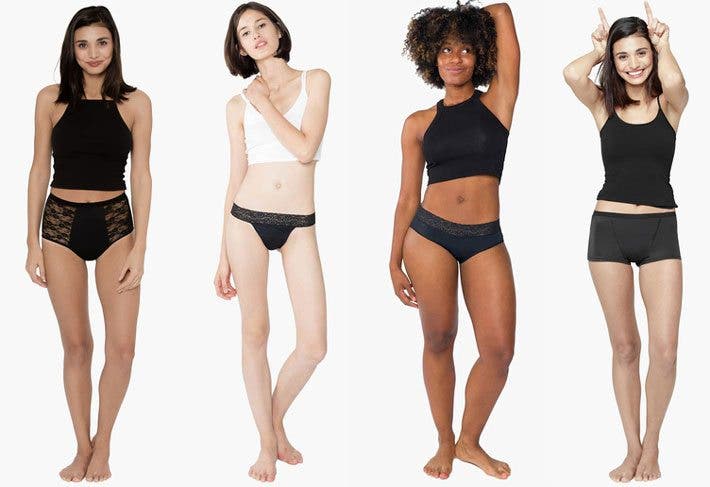The intimate area of the woman must always be kept healthy and with proper hygiene. Women have remained faithful to their tampons or sanitary pads , yet it is not difficult to realize the expectation around reusable menstrual products for women that have been appearing in recent years and also the questioning regarding these.
But are they the same as a tampon? What effects could these products have? Will they be safe? Will they maintain hygiene? Know all the necessary information regarding these products.
3 Intimate products for women reusable
1. Menstrual cups
Although menstrual cups are slowly gaining popularity, they are a new idea. The first menstrual cup was patented in 1937, however it was not successful. This implement should be comfortable when inserting your fingers into the vagina more than a tampon does. If you are familiar with using the diaphragm method of birth control , inserting a menstrual cup is very similar.
When using one of these for the first time, it can be a bit dirtier and more difficult to insert than a tampon. The main advantage menstrual cups have is that they are cheaper than tampons. Also, when inserted the right way, they have a very low probability of leakage.

2. Reusable intimate towel
There is less research available regarding this product, although the only problem that may exist is that it may have some leaks. However, there is growing interest.
Intimate towels can be more comfortable. Some of them are made from safe materials that come with inserts that are absorbent and washable, so this seems to be a great option for all those women who do not like products that must be inserted.
These reusable towels are made with breathable and very safe materials, in this way the intimate and healthy area is kept.

3. Reusable tampons
This product is the one that generates the most controversy. You can find a wide variety of reusable tampons . They are usually made from organic cotton, bamboo cloth, and hemp. However, there is no company that produces these products, which means that there is not as much reliable information on this topic or any previous research.
The problem with these types of tampons is that there is no effective way to ensure that there is not a nest of bacteria in these products when using it more than once. Therefore, this product does not reduce the risk of causing an infection, since everything that the vagina releases has a serious potential risk of infection.
Another fact about reusable tampons is not knowing how many times you can use them. Also, washing machines do not get hot enough to sterilize bacteria.
Reference
- Amy Eisinger, The Real Deal With Reusable Feminine Hygiene Products. For Greatist [Revised March 2016]
